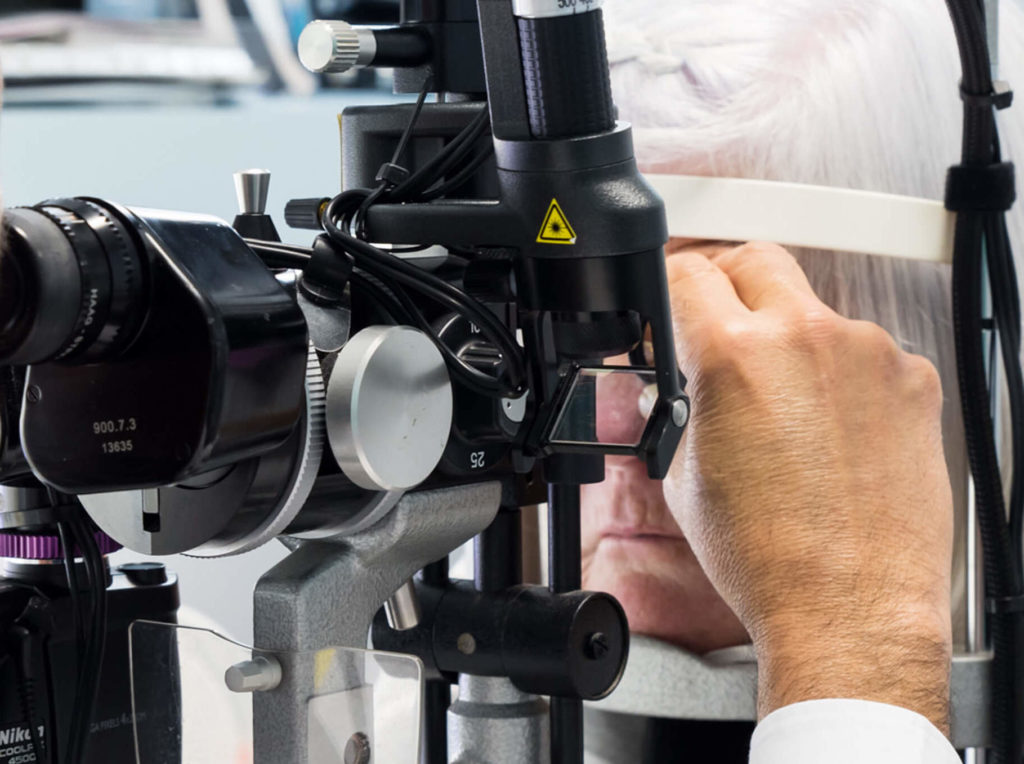Most Frequently Asked Questions an Eye Doctor in Melbourne Receives Due to Age Related Macular Degeneration

Age-related macular degeneration (AMD) typically affects people over the age of 50 and can result in the complete loss of central vision if not identified and treated by an eye doctor in Melbourne. As AMD is a serious condition and symptoms can be difficult to detect in the early stages, many questions can arise before your initial appointment with an eye doctor.
Here are some of the most frequent questions people ask when meeting with an eye doctor in Melbourne regarding age-related macular degeneration:
Am I going to become blind?
Not necessarily, however the answer to this question all depends on your current condition. In the case of wet (neovascular) macular degeneration, you may become legally blind if injections and other treatments fail or if it progresses to an advanced stage. Dry (atrophic) macular degeneration is currently untreatable and you can become legally blind if it progresses. You will still retain your peripheral vision and can navigate through your home and other environments familiar to you, but you will experience difficulty when reading and seeing people’s faces.
Am I going to experience any pain?
Age-related macular degeneration does not cause any pain. This can be a problem as detection in its early stages is difficult because it doesn’t cause any pain. The symptoms in general are also difficult to detect and identify without having an eye examination with an ophthalmologist.
I have early stages of AMD but my vision is fine, what does that mean?
As mentioned before, the symptoms of age-related macular degeneration are very difficult to detect early on due to it being a progressive disease. As it mainly affects central vision loss, some symptoms you may see gradually over time can be noticing faded colours, having trouble adapting to different light conditions, seeing blurry faces, difficulty reading and experiencing the centre of your vision becoming black or greyish.
Is AMD contagious at all?
No, age-related macular degeneration is not contagious and can’t be passed on to another person. Although having a history of AMD in your family can put you at risk of developing the condition.
I have dry AMD, does that mean I will get wet AMD as well?
The most common type of age-related macular degeneration is dry AMD with only a small percentage of people developing wet AMD. Wet AMD is caused when certain cases of dry AMD develop abnormal blood vessels that begin growing under the macula. Over time this will lead to leaking and bleeding in the retina,meaning the deterioration of vision begins to progress faster. If you start noticing any wavy lines or begin having difficulty recognising faces, then contact an eye doctor immediately.
If you suspect that you are experiencing any symptoms associated with age-related macular degeneration, please schedule a consultation appointment with an eye doctor in Melbourne at one of our Northern Eye Centre clinics located in Epping or Heidelberg to determine what treatment options are available to you.
Visit our website to fill out an appointment request form and to find out more information, such as how age-related macular degeneration can slowly affect vision.
